Academic Enrichment Blog |
#1 Next Steps- choosing what to do after sixth form:
17 Oct 20246th Form Blog
In our first session, we explored life beyond Barney and the many paths available to our students after Sixth Form. We kicked off by looking at the UCAS timeline, mapping out the key dates and milestones that Year 12 and 13 students need to be aware of over the coming year.
Our Year 13 scholars led a thoughtful discussion, sharing valuable advice to Year 12 on how to approach next steps and best prepare for the future. We debated the differing priorities between Year 12 and Year 13, and the group examined various options for life after Barney.
Should they opt for a traditional university degree, consider degree-apprenticeships, or jump straight into the working world? The pros and cons of each pathway were carefully weighed.
To help identify the right university fit, students worked through a “diamond nine” exercise, ranking nine personal factors in order of importance. This deep dive into personal priorities will guide them as they make critical decisions about their next steps after Barney.
The session set a strong foundation for the journey ahead, helping students think critically about their futures and make informed choices about their journeys ahead.
#2 Academic discourse: This session connected with our school-wide theme of curiosity. Our sixth formers were challenged to read Medina’s academic text ‘Active Ignorance and the Epistemic Vices of the Privileged’, diving into complex ideas around knowledge, privilege, and ignorance.
The enrichment session was structured as an undergraduate-style seminar, encouraging lively debate and critical thinking from all sides of the table. Students were tasked with analysing the text and engaging in meaningful discussions about its implications.
One of our sixth form students (Charlotte McNickle, Y13) reflected on the session:
‘Active Ignorance, Epistemic Others, and Epistemic Friction
Every other Tuesday, all sixth-form academic scholars gather for a 40-minute enrichment session, designed to challenge and engage our minds in ways that go beyond a traditional classroom experience. This teaching style is ideal preparation for those of us heading to university, as it emphasises small group discussions where everyone can share their perspective on a given topic and engage in meaningful discussion. Before the first session, we read one chapter from the book ‘The Epistemology of Resistance: Gender and Racial Oppression, Epistemic Injustice, and the Social Imagination’
In this specific chapter ‘Active Ignorance, Epistemic Others, and Epistemic Friction’, Jose Medina explores the concept of active ignorance—the wilful avoidance or denial of knowledge that challenges one’s beliefs or privileges. He argues that active ignorance arises when people refuse to engage with information that disrupts their worldview, often to maintain power or avoid discomfort. This ignorance isn’t passive but is reinforced through social practices and structures that marginalize or silence certain groups, whom Medina calls epistemic others. These marginalized voices hold valuable insights but are often disregarded due to systemic inequalities.
Medina emphasizes the importance of epistemic friction, which refers to the productive tension between different perspectives. Engaging with this friction can lead to growth and better understanding. We must confront our biases and open ourselves to alternative viewpoints to become more responsible and inclusive individuals.
An example of active ignorance in the real world is the denial of climate change. Despite overwhelming scientific evidence, some individuals and groups choose to ignore or undermine this information because it conflicts with their economic or political interests. This form of active ignorance prevents necessary actions to address the crisis, perpetuating harm on a global scale. Furthermore, the BLM protests witnessed the introduction of a new phrase ‘All lives matter’. While this is true, it was a form of active ignorance by those privileged individuals, who had never tried to understand the centuries of racism and discrimination endured by society’s victims. This one phrase has diverted attention from the true meaning of these protests, which negatively impacted the lives of the epistemic others.
For us as young adults, this chapter taught us the importance of being open to challenging conversations and different perspectives. It encourages active engagement with diverse viewpoints, even when uncomfortable, it is crucial not just for personal growth, but also for society.’
This seminar was a fantastic opportunity for our students to exercise intellectual curiosity and engage with advanced concepts, setting them up for deeper inquiry and thoughtful reflection as we continue the course throughout the rest of the year with further topics
#3 Feminism and Intersectionality:
As we approached the first half term holiday, we explored feminism and intersectionality through the lens of the Combahee River Collective’s 1970s statement. This seminal document highlights the unique challenges faced by Black women, who experience both sexism and racism. The scholars discussed how, historically, mainstream feminist movements often overlooked the experiences of Black women, focusing instead on the issues facing white women. We connected these themes to ongoing struggles today, such as economic inequality and underrepresentation in media.
Another key discussion point was tokenism—the superficial inclusion of marginalized groups. Our scholars noted that while tokenism creates the appearance of diversity, it often reinforces exclusion by not addressing deeper systemic issues. Token inclusion can isolate those brought in, placing unfair expectations on them to represent their entire group.
The group also reflected on the statement’s contemporary relevance. While the term intersectionality, introduced by Kimberlé Crenshaw, is more widely understood today, its application is still inconsistent. The scholars debated how modern movements like #MeToo have made progress, but often still overlook the voices of women of colour, trans women, and other marginalized groups.
PHOTOS – Half term 1 trip: 100 days of Labour: Are we any closer to solving inequality? At York University.




